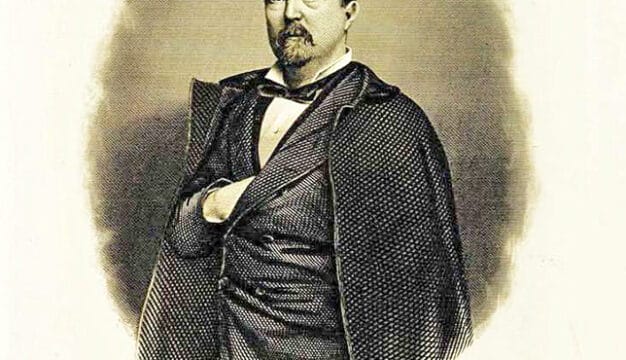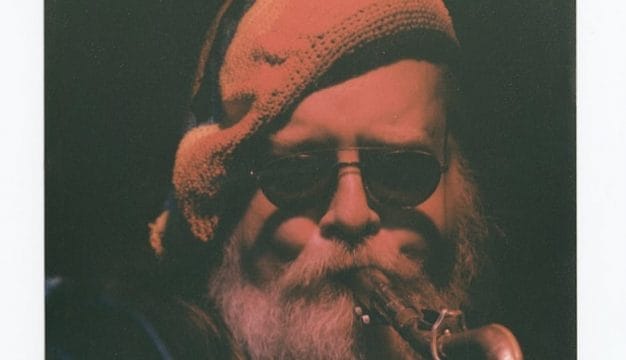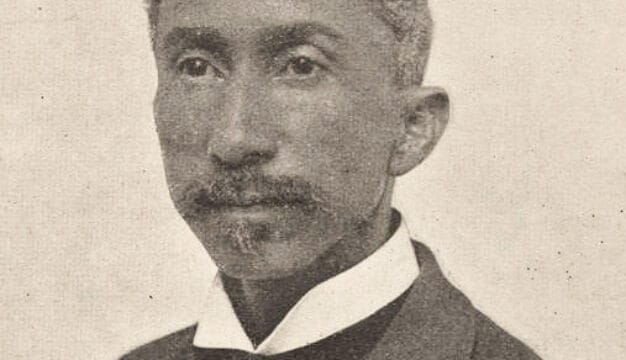Eugene "Bull" Connor
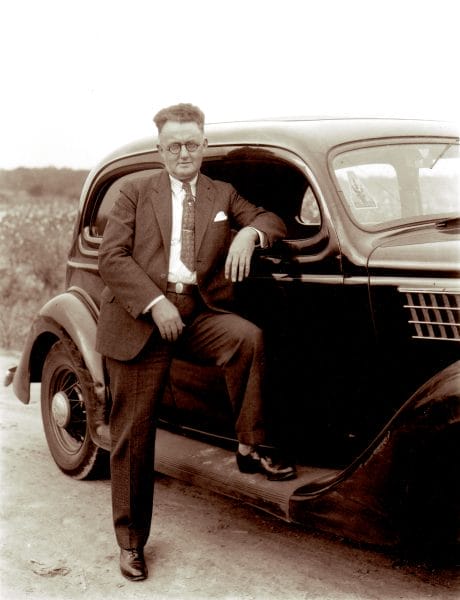 Eugene “Bull” Connor
A successful politician who held a variety of public offices over four decades, Eugene “Bull” Connor (1897-1973) is primarily remembered today as an icon of racial intolerance. Theophilus Eugene Connor was born on July 11, 1897, in Selma, Dallas County, to Hugh King Connor, a train dispatcher and telegraph operator, and Molly Godwin Connor. His father’s work required frequent travel, and Eugene’s family lived in several states during his childhood. When he was eight years old, Connor’s mother died of pneumonia while the family was living in Atlanta. His father continued to travel, and Eugene spent much of his childhood and early teenage years living with relatives in Plantersville, Chilton County, and Birmingham, Jefferson County. He attended school in both places but did not graduate.
Eugene “Bull” Connor
A successful politician who held a variety of public offices over four decades, Eugene “Bull” Connor (1897-1973) is primarily remembered today as an icon of racial intolerance. Theophilus Eugene Connor was born on July 11, 1897, in Selma, Dallas County, to Hugh King Connor, a train dispatcher and telegraph operator, and Molly Godwin Connor. His father’s work required frequent travel, and Eugene’s family lived in several states during his childhood. When he was eight years old, Connor’s mother died of pneumonia while the family was living in Atlanta. His father continued to travel, and Eugene spent much of his childhood and early teenage years living with relatives in Plantersville, Chilton County, and Birmingham, Jefferson County. He attended school in both places but did not graduate.
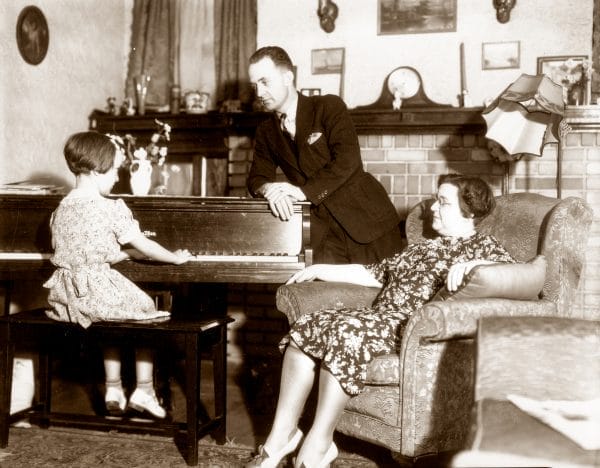 Connor Family
In 1920, he married Beara Levens, the daughter of a lumber-mill operator, and the couple had one daughter. The family settled in Birmingham in 1922, and Connor worked as a telegraph operator, salesman, and popular sports-radio announcer. During this time he acquired his nickname from friends amused by the similarity between Connor’s name and a local newspaper cartoon character, Dr. B. U. L. Conner.
Connor Family
In 1920, he married Beara Levens, the daughter of a lumber-mill operator, and the couple had one daughter. The family settled in Birmingham in 1922, and Connor worked as a telegraph operator, salesman, and popular sports-radio announcer. During this time he acquired his nickname from friends amused by the similarity between Connor’s name and a local newspaper cartoon character, Dr. B. U. L. Conner.
In 1934, Connor entered the Democratic primary race for a seat in the Alabama House of Representatives. Claiming that his candidacy was a lark, Connor barely campaigned, but his name recognition as a radio personality helped him to win the election. Connor served in the legislature from 1935 to 1937 and introduced or championed bills, such as poll tax reform, that were popular with white working-class people and unions. He opposed tax increases and legislative pay raises and voted against an anti-sedition bill designed to stifle labor union activity. In 1937, Connor was elected Birmingham’s commissioner of public safety, a position that gave him administrative authority over the police and fire departments, schools, the public health service, and libraries. Aligned with Birmingham’s large business interests, Connor supported low taxes and limited government. To the white public, he presented himself as a champion of working people, a tireless crime fighter, and an uncompromising defender of racial segregation. He won reelection to the city commission in 1941, 1945, and 1949.
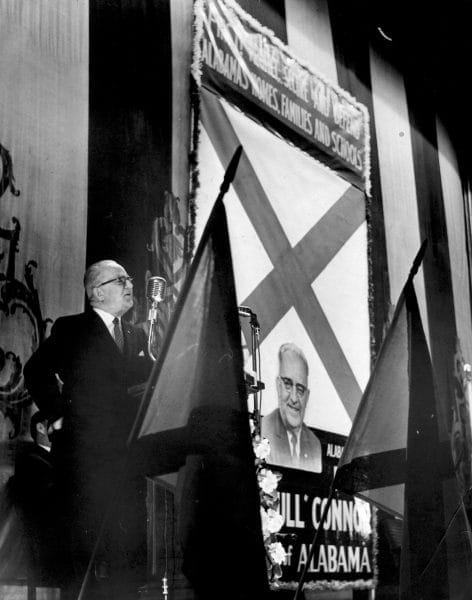 Connor Campaigns for Governor
Connor served as a delegate to four Democratic National Conventions (1948, 1956, 1964, and 1968). At the 1948 convention, he helped lead a walkout by southern delegates in protest of Pres. Harry S. Truman’s civil rights policies. This action resulted in a split in the southern wing of the Democratic Party, with the dissenters becoming known as Dixiecrats. In 1950, Connor ran unsuccessfully for governor and then returned to his work as a commissioner. He did not seek reelection to the commission in 1953 because of a scandal involving an extramarital affair and charges of police corruption, but he was voted back onto the commission in 1957. In 1960, Connor was elected Alabama’s Democratic National Committeeman, and 1962 he ran another unsuccessful campaign for governor.
Connor Campaigns for Governor
Connor served as a delegate to four Democratic National Conventions (1948, 1956, 1964, and 1968). At the 1948 convention, he helped lead a walkout by southern delegates in protest of Pres. Harry S. Truman’s civil rights policies. This action resulted in a split in the southern wing of the Democratic Party, with the dissenters becoming known as Dixiecrats. In 1950, Connor ran unsuccessfully for governor and then returned to his work as a commissioner. He did not seek reelection to the commission in 1953 because of a scandal involving an extramarital affair and charges of police corruption, but he was voted back onto the commission in 1957. In 1960, Connor was elected Alabama’s Democratic National Committeeman, and 1962 he ran another unsuccessful campaign for governor.
A staunch and sometimes flamboyant white supremacist, Connor was known for making outrageous comments to the press and for instigating now-famous confrontations over Birmingham’s segregation ordinances with First Lady Eleanor Roosevelt and U.S. Senator Glen Taylor. While apparently not a member of the Ku Klux Klan, Connor protected Klansmen who committed racial violence, including bombings. In 1961, he ordered Birmingham police to stay away from the Trailways bus station while Klansmen attacked the Freedom Riders, a group of civil rights activists who were touring the South to protest segregation. This attack, combined with his closing of city parks to prevent desegregation, the threatened closing of city schools, and Birmingham’s worsening reputation in the national media, turned the local business community and a majority of the white electorate against Connor. In 1962, the citizens voted to change the form of city government, in part to remove him from office.
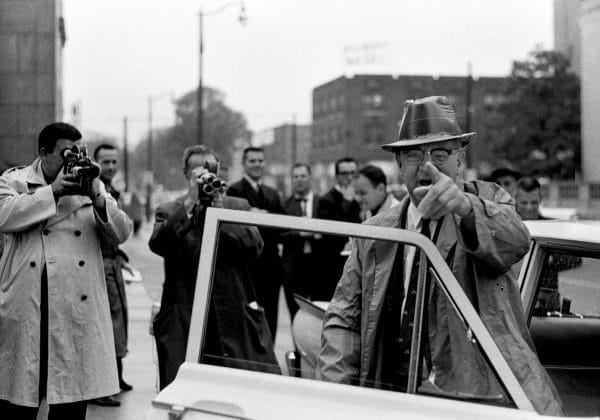 “Bull” Connor in 1963
Along with Birmingham’s two other city commissioners, Connor filed a legal challenge to the change in city government and remained in office until May 1963. During this time, Martin Luther King Jr., in cooperation with local civil rights leaders, led demonstrations in Birmingham against racial segregation. Connor ordered Birmingham police officers and firemen to use dogs and high-pressure water hoses against demonstrators. Images of the resulting mayhem appeared on television and in newspapers throughout the country and helped to shift public opinion in favor of national civil-rights legislation. Images of the demonstrations are still regularly broadcast and published and have helped cement Connor and Birmingham as symbols of racial intolerance.
“Bull” Connor in 1963
Along with Birmingham’s two other city commissioners, Connor filed a legal challenge to the change in city government and remained in office until May 1963. During this time, Martin Luther King Jr., in cooperation with local civil rights leaders, led demonstrations in Birmingham against racial segregation. Connor ordered Birmingham police officers and firemen to use dogs and high-pressure water hoses against demonstrators. Images of the resulting mayhem appeared on television and in newspapers throughout the country and helped to shift public opinion in favor of national civil-rights legislation. Images of the demonstrations are still regularly broadcast and published and have helped cement Connor and Birmingham as symbols of racial intolerance.
After leaving office in Birmingham, Connor was elected to two terms as president of the Alabama Public Service Commission (1964-73), the state agency that regulates utilities. He died as the result of a stroke on March 10, 1973. Unlike some white supremacist leaders of his time, Connor was unrepentant and never repudiated his defense of racial segregation.
Further Reading
- Eskew, Glenn T. But for Birmingham: The Local and National Movements in the Civil Rights Struggle. Chapel Hill: University of North Carolina Press, 1997.
- Nunnelley, William A. Bull Connor. Tuscaloosa: University of Alabama Press, 1991.
- Thornton, J. Mills, III. Dividing Lines: Municipal Politics and the Struggle for Civil Rights in Montgomery, Birmingham, and Selma. Tuscaloosa: University of Alabama Press, 2002.
